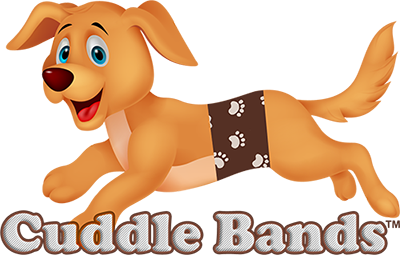Free shipping on all orders over $35!
Free shipping on all orders over $35!
December 31, 2021
Keeping your beloved older dog comfortable in the cold will take some planning. Icy sidewalks, snow, and cold winds can all cause a great deal of discomfort for your senior dog.
Icy sidewalks can lead to dangerous slips, which can be hard on tendons, muscles and joints. Your older or handicapped dog could also suffer a serious slip and land on their ribcage or on their tummy. If the sidewalks are free of ice but have been treated with salt, make sure you clean their pads at the end of the walk.
A cold wind wills steal the heat from an older dog, especially if their coat is light. As possible, walk early before the wind comes up. If you can't, try to walk in areas that offer some protection. You may need to avoid their favorite park unless there's a decent windbreak from trees and buildings.
Your pup may be resistant to going outside to potty. To prevent accidents indoors (especially for senior incontinent male dogs) a dog belly band can provide extra protection.
If it's just too cold for you and your dog to be out, make sure you have a way to help them get a bit of exercise indoors. Toss the ball down the hall, get on the floor and wrestle with them a bit, and play with a favorite toy until they're a bit winded to keep their spirits up.
Your dog may not act as though they're thirsty, but cold air is dry air. Carry water to allow your dog to take a hydration break during your walk together. Try to set down their water bowl in a sheltered place so they take the time to drink enough to protect the tissue around their nose and eyes from cold, dry air.
If your dog has gotten caught in the cold, such as if a dog door has failed, carefully check their ears and feet. Dogs can get frostbite and it's very painful. It can also send an older dog into shock, which can be fatal.
If your older dog is slow to get off their bed, it may be time to add a supplement to lubricate older joints. Your vet can help you find the best combination. Do take care to only supplement when you will be home with your dog. Changing their diet or supplement intake can upset their tummy and you want to be with your dog should they suffer any upset.
Consider adding a layer of memory foam under their bed. Poly memory foam can hold onto heat better than a natural foam and is likely easier on your budget, so you may want to remove it in the spring to avoid overheating them.
Avoid over-bathing. You may notice some flaking when the heat in your house kicks on. Make sure you brush them daily to promote oil production and reduce itching and flaking.
Consider adding a bit of coconut oil to a treat each day to boost their fat intake. Do be aware that coconut oil can lead to more frequent bowel movements, so don't give this in the morning before you head out to work. Dose on the weekend and stay with your dog so you can be sure they are successfully tolerating any dietary change.
If your dog used to love a romp in the snow, do your best to get out there and play with them in some good powder. They may not tolerate the cold and the snow on their feet as they used to, but the chance to play with you will help them find the fun in winter.
September 12, 2025
September 10, 2025
June 22, 2021
